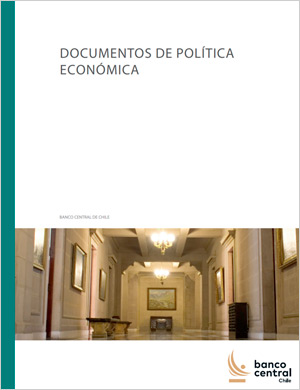Economic Policy Papers N° 62: Constitucionalismo Económico y la Autonomía Institucional del Banco Central de Chile
Publications
Economic Policy Papers N° 62: Constitucionalismo Económico y la Autonomía Institucional del Banco Central de Chile
Autor: Mario Marcel
Description
This paper deals with the economic content of the Chilean Constitution, with a special focus on the place occupied by the Central Bank of Chile. A review is made on how and to what end economic contents have been incorporated in constitutions around the world, identifying their scope in Chile’s current Constitution.
Then, we provide an analysis of the constitutional provisions about the Central Bank of Chile, particularly regarding its institutional autonomy, which is compared with the constitutional rules currently applicable to other autonomous agencies. It is noted that the greater organic, operational, and economic independence that the present Constitution grants the Central Bank couples with greater requirements in terms of accountability and with dispositions oriented to strengthening the coordination of macroeconomic policies. With the passage of time, the evolution of the rules emanating from the Bank itself and the monetary policy framework has tended to intensify these characteristics.
The paper then aims to evaluate the economic impact of the institutional autonomy of the Central Bank considering the theoretical and empirical pillars supporting it. The evidence accumulated over the 27 years of this regime is conclusive not only in that such independence has been fundamental to achieve substantial and lasting progress in the control of inflation but also in relation to its contribution to reducing volatility and macroeconomic risks in the country.
The work concludes with a discussion on the prospects for the future institutional development of the Central Bank in the context of the ongoing debate on a new Constitution for Chile. In this regard, it is argued that both the economic achievements and the responsibility in exercising its autonomy by the Bank are powerful arguments for validating its current status with citizens, just as doctrine and accumulated practice provide enough elements to update the institutional conception of autonomy, framed in the principles and obligations of the democratic order. This does not prevent the Central Bank from continuing to adapt its organization and competencies to face new economic and political challenges.
Economic Policy Papers N° 62: Constitucionalismo Económico y la Autonomía Institucional del Banco Central de Chile
Boxes and graphics

